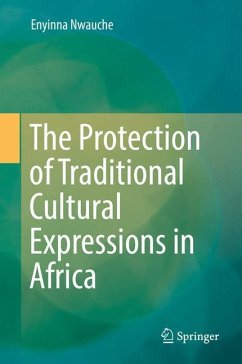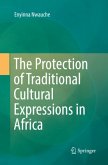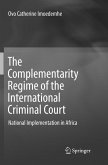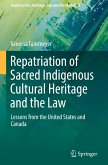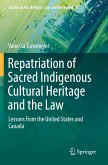This book evaluates the protection of traditional cultural expressions in Africa using South Africa, Kenya, Nigeria and Ghana as case study examples in the light of regional and international approaches in this respect. Such protection is considered in the context of a combination of positive protection models such as the protection offered by intellectual property rights and negative protection such as tangible heritage protection and authorisations by national competent authorities. These models are in turn assessed taking into consideration human and peoples' rights frameworks, which recognise and affirm group entitlement to, among others, traditional cultural expressions. These frameworks ensure that such traditional cultural expressions are available for further innovation and creativity.
"A specific contribution of the book is that it fills a literature gap on the assessment of African laws protecting TCEs. ... the book will be a reliable and superb reference for further elaboration. ... This book is meant to be read by those researchers focusing on TCEs, cultural heritage, indigenous property and related law issues. It will also be of the greatest value to those involved in law-making for TCEs and indigenous culture." (Zhang Jiarong, European Intellectual Property Review, Vol. 41 (5), 2019)
"The Protection of Traditional Cultural Expressions in Africa is a thoughtful, well-argued book, whichfills a critical void in the literature on state protection of indigenous IP rights. Its varying references to legislation in 24 African countries is an impressive resource for IP, comparative law, and law and development scholars interested in the operation of law in Africa." (Anthony C. Diala, Journal of Comparative Law in Africa, Vol. 4 (2), 2017)
"The Protection of Traditional Cultural Expressions in Africa is a thoughtful, well-argued book, whichfills a critical void in the literature on state protection of indigenous IP rights. Its varying references to legislation in 24 African countries is an impressive resource for IP, comparative law, and law and development scholars interested in the operation of law in Africa." (Anthony C. Diala, Journal of Comparative Law in Africa, Vol. 4 (2), 2017)

